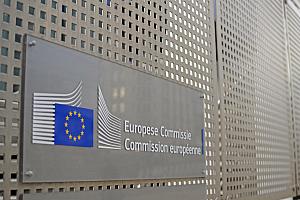ECB sees concerns about the sustainability of inflation convergence in Romania

There are concerns about the sustainability of inflation convergence in Romania over the longer term, according to the European Central Bank's (ECB) Convergence Report, which, as expected, concluded that Romania meets none of the euro adoption criteria.
In May 2024, the 12-month average rate of HICP inflation in Romania was 7.6%, considerably above the reference value of 3.3% for the criterion on price stability. This rate is expected to decrease gradually over the coming months, but the core inflation is likely to remain sticky, the ECB notes.
Unless counteracted by an appreciation of the nominal exchange rate, the catching-up process is likely to result in positive inflation differentials vis-à-vis the euro area since GDP per capita and price levels are still lower in Romania than in the euro area, according to the ECB report quoted by Economedia.ro.
The source of the concerns expressed by the ECB is the core inflation, which is expected to remain sticky in Romania and is being fuelled by strong wage developments in the context of a tight labour market.
Unit labour costs grew by 26.7% over the period from 2020 to 2023, which is well above the euro area rate of 9.5%.
Romania also failed on the other five euro adoption criteria.
The country is currently subject to an excessive deficit procedure, and the European Commission found in June 2024 that it did not take effective measures.
The budget deficit of the public administration in Romania was 6.6% in 2023, significantly above the reference value of 3%. Unit labor costs increased by 26.7% between 2020 and 2023, well above the 9.5% rate in the euro area.
Long-term interest rates in Romania were, on average, at 6.4%, thus exceeding the reference value of 4.8% for the interest rate convergence criterion.
Romania's capital markets are much smaller than those in the Eurozone and are still underdeveloped.
The European Commission published its convergence report as well, concluding that none of the assessed member states currently meets all the criteria for joining the eurozone, but Bulgaria is close.
iulian@romania-insider.com
(Photo source: Dreamstime.com)













